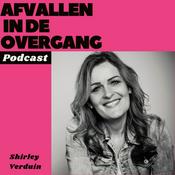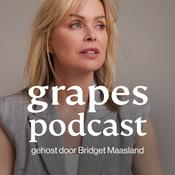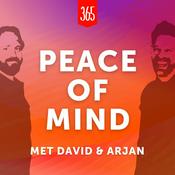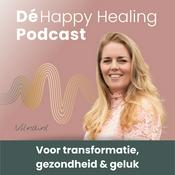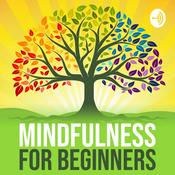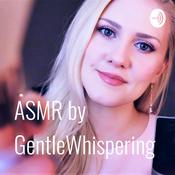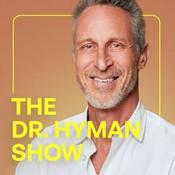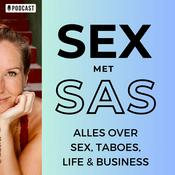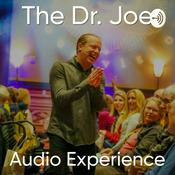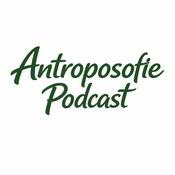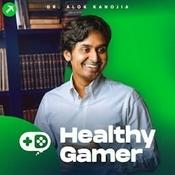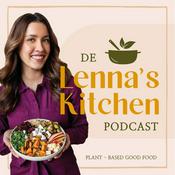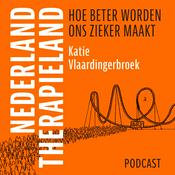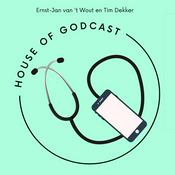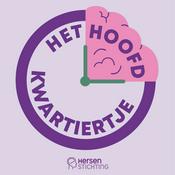62 afleveringen
- Most people think dementia starts with memory loss. But for millions, it actually begins decades earlier: in the blood vessels.
Long before someone forgets a name or misses an appointment, the brain is being quietly damaged by high blood pressure, cholesterol imbalance, poor sleep, inflammation, and chronic stress, day after day, year after year.
This kind of damage doesn't look dramatic. There's no big stroke, no clear warning sign. It happens slowly and silently, which is why it's so often missed until it's too late.
But here's the good news: vascular dementia is one of the most preventable and manageable forms of cognitive decline. When caught early, lifestyle changes and medical interventions can help slow the onset and manage the effects.
In this episode, we explore:
What vascular dementia and vascular cognitive impairment are, and how they differ from Alzheimer's disease
Why most dementia cases involve both vascular damage and neurodegenerative pathology (mixed dementia)
How blood vessel damage begins in childhood and accumulates silently for decades
The role of high blood pressure, cholesterol, diabetes, sleep disorders, and chronic stress in damaging brain vasculature
Why slowed thinking, movement, and processing speed are hallmark signs of vascular cognitive decline
The critical importance of the endothelium: the thin lining of blood vessels that controls brain health
How lifestyle factors like nutrition, exercise, sleep, and stress management protect and repair vascular health
Why managing blood pressure early is one of the most powerful interventions for long-term brain health (and why everyone should have a blood pressure monitor at home!)
How vascular damage can be slowed, even in midlife
Practical steps for prevention across the lifespan, from childhood through older adulthood
Our guest for this episode is DR. COLUMBUS BATISTE, a board-certified interventional cardiologist, an incredible science communicator, and author of 'Selfish: A Cardiologist's Guide to Healing a Broken Heart'. Dr. Batiste brings deep expertise on how cardiovascular health shapes brain health, and why protecting the endothelium (the inner lining of blood vessels) is foundational to longevity. His work emphasizes that all roads to longevity are paved by the heart, and what's good for the heart is good for the brain!
'Your Brain On…' is hosted by neurologists, scientists, and public health advocates Drs. Ayesha and Dean Sherzai.
SUPPORTED BY: NEURO World, a science-based brain health community designed to help you protect your brain long before problems begin. Learn more at https://neuro.world/
'Your Brain On… Vascular Dementia' • SEASON 6 • EPISODE 8
———
LINKS
Dr. Columbus Batiste: https://drbatiste.com/
Instagram: @HeartHealthyDoc
Facebook: https://www.facebook.com/drbatiste
———
FOLLOW US
Join NEURO World: https://neuro.world/
Instagram: https://www.instagram.com/thebraindocs
YouTube: https://www.youtube.com/thebraindocs
———
REFERENCES
Core Definitions & Diagnostic Framework
• Diagnostic and Statistical Manual of Mental Disorders (5th ed.) - American Psychiatric Publishing
• Vascular contributions to cognitive impairment and dementia - https://doi.org/10.1161/STR.0b013e3182299496
• Classifying neurocognitive disorders: The DSM-5 approach - https://doi.org/10.1038/nrneurol.2014.181
Epidemiology & Public Health Burden
• Neuropathological diagnosis of vascular cognitive impairment and vascular dementia with implications for Alzheimer's disease - https://doi.org/10.1007/s00401-016-1571-z
• Vascular dementia - https://doi.org/10.1016/S0140-6736(15)00463-8
• Risk reduction of cognitive decline and dementia: WHO guidelines - WHO Press
Small Vessel Disease & Subcortical Vascular Dementia
• Small vessel disease: Mechanisms and clinical implications - https://doi.org/10.1016/S1474-4422(19)30079-1
• Cerebral small vessel disease: From pathogenesis and clinical characteristics to therapeutic challenges - https://doi.org/10.1016/S1474-4422(10)70104-6
• The clinical importance of white matter hyperintensities on brain magnetic resonance imaging - https://doi.org/10.1136/bmj.c3666
Mixed Dementia & Alzheimer–Vascular Overlap
• Mixed brain pathologies account for most dementia cases in community-dwelling older persons - https://doi.org/10.1212/01.wnl.0000271090.28148.24
• Early role of vascular dysregulation on late-onset Alzheimer's disease - https://doi.org/10.1016/j.neurobiolaging.2016.04.009
• The pathobiology of vascular dementia - https://doi.org/10.1016/j.neuron.2013.10.008
Cerebral Amyloid Angiopathy (CAA)
• Cerebral amyloid angiopathy and Alzheimer disease—one peptide, two pathways - https://doi.org/10.1038/s41582-019-0281-2
• Emerging concepts in sporadic cerebral amyloid angiopathy - https://doi.org/10.1093/brain/awx047
Genetics, Inflammation, and Repair
• Apolipoprotein E controls cerebrovascular integrity via cyclophilin A - https://doi.org/10.1038/nature11087
• TREM2—A key player in microglial biology and Alzheimer disease - https://doi.org/10.1038/s41582-018-0072-1
Prevention & Vascular Risk Factors
• Dementia prevention, intervention, and care: 2020 report of the Lancet Commission - https://doi.org/10.1016/S0140-6736(20)30367-6
• Lifestyle interventions to prevent cognitive impairment, dementia and Alzheimer disease - https://doi.org/10.1038/s41582-018-0070-3
Further Reading
• The role of vascular risk factors in Alzheimer's disease - https://doi.org/10.1038/s41582-021-00530-4 - Cold plunges are everywhere, and the way people talk about them, you'd think they're a miracle cure for your brain, body, and soul.
But in an age of algorithm-fueled evangelism, when a ritual becomes this ubiquitous and loud, we have to ask: how much of the buzz is backed by science… and how much is just marketing?
In this episode, we explore the neuroscience of cold exposure: what's real, what's overstated, and why this "discomfort" has become a billion-dollar industry.
We discuss:
Why cold plunges went viral, and how wellness movements often devolve into identity-driven cultures
The difference between cold exposure itself and the monetized "cold plunge movement"
What constitutes a "cult" (and how pseudoscience forms around partial truths)
The real physiological cold shock response
Why the mental "high" after a plunge doesn't automatically equal long-term brain benefit
The cardiovascular risks that rarely get discussed, especially for people with underlying heart disease
What the research suggests about soreness, pain reduction, and muscle growth (including why cold immersion can blunt hypertrophy)
The real story behind brown fat
Who should avoid cold plunges altogether (asthma, arrhythmias, coronary disease, vascular conditions)
Joining us for this conversation is investigative journalist and bestselling author Scott Carney (What Doesn't Kill Us, The Wedge), who has spent years inside the cold exposure world, first as a skeptic, then as a believer, and eventually as a critic of the culture that formed around it. His work reveals what happens when discomfort becomes identity, and when unfounded "social media science" outruns real science.
Your Brain On... is hosted by neurologists, scientists, and public health advocates Drs. Ayesha and Dean Sherzai.
SUPPORTED BY: the 2026 NEURO World Retreat. A 5-day journey through science, nature, and community, on the California coastline: neuroworldretreat.com
Your Brain On... Cold Plunges • SEASON 6 • EPISODE 7
REFERENCES
Cold Water Immersion, Muscle Adaptation, and Recovery
Roberts, L. A., Raastad, T., Markworth, J. F., Figueiredo, V. C., Egner, I. M., Shield, A., Cameron-Smith, D., Coombes, J. S., & Peake, J. M. (2015). Post-exercise cold water immersion attenuates acute anabolic signalling and long-term adaptations in muscle to strength training. Journal of Physiology, 593(18), 4285–4301. https://doi.org/10.1113/JP270570
Bleakley, C. M., McDonough, S. M., & MacAuley, D. C. (2004). The use of ice in the treatment of acute soft-tissue injury: A systematic review of randomized controlled trials. American Journal of Sports Medicine, 32(1), 251–261. https://doi.org/10.1177/0363546503260757
Leeder, J., Gissane, C., van Someren, K., Gregson, W., & Howatson, G. (2012). Cold water immersion and recovery from strenuous exercise: A meta-analysis. British Journal of Sports Medicine, 46(4), 233–240. https://doi.org/10.1136/bjsports-2011-090061
White, G. E., & Wells, G. D. (2013). Cold-water immersion and other forms of cryotherapy: Physiological changes potentially affecting recovery from high-intensity exercise. Sports Medicine, 43(8), 695–706. https://doi.org/10.1007/s40279-013-0055-8
Kellmann, M., Bertollo, M., Bosquet, L., Brink, M., Coutts, A. J., Duffield, R., Erlacher, D., Halson, S. L., Hecksteden, A., Heidari, J., Kölling, S., Meyer, T., Mujika, I., Robazza, C., Skorski, S., Venter, R., & Beckmann, J. (2018). Recovery and performance in sport: Consensus statement. International Journal of Sports Physiology and Performance, 13(2), 240–245. https://doi.org/10.1123/ijspp.2017-0759
Inflammation, Pain, and Perceived Recovery
Hohenauer, E., Taeymans, J., Baeyens, J. P., Clarys, P., & Clijsen, R. (2015). The effect of post-exercise cryotherapy on recovery characteristics: A systematic review and meta-analysis. PLoS ONE, 10(9), e0139028. https://doi.org/10.1371/journal.pone.0139028
Costello, J. T., Culligan, K., Selfe, J., & Donnelly, A. E. (2012). Muscle, skin and core temperature after –110°C cold air and 8°C water treatment. PLoS ONE, 7(11), e48190. https://doi.org/10.1371/journal.pone.0048190
Brown Adipose Tissue (BAT) – Human Imaging & Metabolism
van Marken Lichtenbelt, W. D., Vanhommerig, J. W., Smulders, N. M., Drossaerts, J. M., Kemerink, G. J., Bouvy, N. D., Schrauwen, P., & Teule, G. J. (2009). Cold-activated brown adipose tissue in healthy men. New England Journal of Medicine, 360(15), 1500–1508. https://doi.org/10.1056/NEJMoa0808718
Virtanen, K. A., Lidell, M. E., Orava, J., Heglind, M., Westergren, R., Niemi, T., Taittonen, M., Laine, J., Savisto, N. J., Enerbäck, S., & Nuutila, P. (2009). Functional brown adipose tissue in healthy adults. New England Journal of Medicine, 360(15), 1518–1525. https://doi.org/10.1056/NEJMoa0808949
Betz, M. J., & Enerbäck, S. (2015). Human brown adipose tissue: What we have learned so far. Diabetes, 64(7), 2352–2360. https://doi.org/10.2337/db15-0146
Autonomic Nervous System, HRV, and Cold Exposure
Mourot, L., Bouhaddi, M., Regnard, J., Tordi, N., & Rouillon, J. D. (2008). Cardiac autonomic control during short-term exposure to cold water in humans. European Journal of Applied Physiology, 104(3), 541–547. https://doi.org/10.1007/s00421-008-0810-3
Janský, L., Pospíšilová, D., Honzová, S., Uličný, B., Šrámek, P., Zeman, V., & Kamínková, J. (1996). Immune system of cold-exposed and cold-adapted humans. European Journal of Applied Physiology, 72(5–6), 445–450. https://doi.org/10.1007/BF00242276
Cardiovascular Stress and Cold Shock
Tipton, M. J., Collier, N., Massey, H., Corbett, J., & Harper, M. (2017). Cold water immersion: Kill or cure? Experimental Physiology, 102(11), 1335–1355. https://doi.org/10.1113/EP086283
Tipton, M. J., & Bradford, C. (2014). Cold water immersion and cold shock response. Extreme Physiology & Medicine, 3(1), 1–10. https://doi.org/10.1186/2046-7648-3-7
Whole-Body Cryotherapy (Distinct From Cold Plunges)
Costello, J. T., Baker, P. R., Minett, G. M., Bieuzen, F., Stewart, I. B., & Bleakley, C. (2015). Whole-body cryotherapy (extreme cold air exposure) for preventing and treating muscle soreness after exercise in adults. Cochrane Database of Systematic Reviews, 2015(9), CD010789. https://doi.org/10.1002/14651858.CD010789.pub2
LINKS
Scott Carney's website: https://www.scottcarney.com/
FOLLOW US
Join NEURO World: https://neuro.world/
Instagram: https://www.instagram.com/thebraindocs
YouTube: https://www.youtube.com/thebraindocs
More info and episodes: TheBrainDocs.com/Podcast - Around the start of 2026, a study sparked viral headlines claiming that cheese could reduce dementia risk.
But... nutrition science almost never works like this. One study can't "prove" a food is protective or harmful, and viral health claims often miss the most important details of research: how the data was gathered, what was actually measured, what variables were controlled for, and what it means in real life.
In this episode, we unpack what the 'viral cheese study' (PMID: 41406402) actually found, what it DOESN'T mean, and why critical thinking around nutrition headlines matters more than ever.
We discuss:
• Why viral food headlines are so persuasive (and so often misleading)
• What the cheese study REALLY reported
• The difference between correlation and causation in nutrition research
• Why long-term dietary recall data can be unreliable
• How bias (including our personal food preferences) shapes interpretation of research
• What "show me the data" really means in a world of clickbait science
• How to interpret food and brain health studies without falling into extremes
We also speak to Emily Sonestedt, research group leader and associate professor at Lund University, and one of the authors of the viral study.
"Your Brain On..." is hosted by neurologists, scientists, and public health advocates Drs. Ayesha and Dean Sherzai.
SUPPORTED BY: the 2026 NEURO World Retreat. A 5-day journey through science, nature, and community, on the California coastline: https://www.neuroworldretreat.com/
'Your Brain On... Cheese' • SEASON 6 • EPISODE 6
———
LINKS
The study, 'High- and Low-Fat Dairy Consumption and Long-Term Risk of Dementia: Evidence From a 25-Year Prospective Cohort Study': https://pubmed.ncbi.nlm.nih.gov/41406402/
———
FOLLOW US
Join NEURO World: https://neuro.world/
Instagram: https://www.instagram.com/thebraindocs
YouTube: https://www.youtube.com/thebraindocs
More info and episodes: TheBrainDocs.com/Podcast - Chemotherapy saves lives. But for millions, it also comes with side effects of cognitive fog, memory lapses, slowed thinking, and emotional flattening.
In the past, 'chemo brain' has sometimes been dismissed as anecdotal. But, as science has evolved, we've come to understand the very real shifts in attention, memory, processing speed, and emotional regulation underpinning the impairment.
In this episode, we break down what's happening in the brain during treatment, why these changes arise, and how healthier lifestyle choices can support our recovery.
In this episode, we explore:
• What 'chemo brain' really is (and why chemotherapy itself isn't the only thing contributing to it)
• How inflammation, hormonal shifts, anesthesia, sleep disruption, and chronic stress impact cognition during cancer
• The latest research on structural and functional brain changes during treatment
• Why many cognitive effects are temporary (and how neuroplasticity supports recovery)
• How cognitive fog intersects with identity loss and grief
• The role of nutrition in supporting clarity, energy, memory, and mood during chemotherapy
• How to navigate food fears, misinformation, and "miracle cancer diets"
• The importance of gentle movement, sleep consistency, and stress management
• How patients can advocate for themselves (including tips on what to discuss with their care team)
Bringing their perspectives and expertise to this episode are two wonderful guests:
• DR. LIZ O'RIORDAN: retired breast surgeon, author, and three-time breast cancer survivor, whose personal and clinical experience offers a rare, deeply human insight into cancer-related cognitive change.
• NICHOLE ANDREWS, RDN: oncology dietitian, educator, and advocate for evidence-based, fear-free nutrition during and after cancer treatment.
"Your Brain On..." is hosted by neurologists, scientists, and public health advocates Drs. Ayesha and Dean Sherzai.
SUPPORTED BY: the 2026 NEURO World Retreat. A 5-day journey through science, nature, and community, on the California coastline: https://www.neuroworldretreat.com/
'Your Brain On... Parkinson's' • SEASON 6 • EPISODE 5
———
LINKS
Dr. Liz O'Riordan:
Website: https://liz.oriordan.co.uk/
Instagram: https://www.instagram.com/oriordanliz/
YouTube: https://www.youtube.com/channel/UC_t0jGeR8M4vCPSb68itjRQ
Nichole Andrews, RDN:
Website: https://theoncologydietitian.com/
Instagram: https://www.instagram.com/oncology.nutrition.rd/
———
FOLLOW US
Join NEURO World: https://neuro.world/
Instagram: https://www.instagram.com/thebraindocs
YouTube: https://www.youtube.com/thebraindocs
More info and episodes: TheBrainDocs.com/Podcast - From 18th century London to the promise of a global cure: the 200-year history of Parkinson's disease.
To mark the release of our 'Ask the MD' conversation with The Michael J. Fox Foundation for Parkinson's Research, and to welcome a new influx of listeners, we're sharing one of our very first episodes, first aired in August 2024.
Watch our full 'Ask the MD' interview, focused on lifestyle strategies for boosting brain health, on the foundation's website: https://www.michaeljfox.org/news/lifestyle-strategies-boost-brain-health-ask-md-video
Parkinson's, a neurodegenerative disorder most commonly characterized by tremors and other motor symptoms, is so complex, many medical professionals are starting to classify it as a group of diseases, rather than a single disease.
In this episode, we explain those complexities, including:
• The motor symptoms (e.g. cogwheel rigidity, bradykinesia) and non-motor symptoms (e.g. depression, sleep disorders)
• How the industrial revolution may have brought about environmental factors which contribute to Parkinson's
• The differences and similarities between Parkinson's and other neurodegenerative diseases, like Alzheimer's
• How Parkinson's manifests in our brains
• Why one nurse was able to detect Parkinson's through smell
• The neurogenetics of Parkinson's, and the ethical quandaries of evolving genetic technology
• Why lifestyle — nutrition, exercise, etc. — is so key to preventing and managing Parkinson's
Joining us for this extensive conversation are three incredible guests:
• Dr. Rachel Dolhun, Senior Vice President of Medical Communications at The Michael J. Fox Foundation for Parkinson's Research
• Dr. Michael Okun, evolutionary biologist, movement disorders specialist, and Director of the Norman Fixel Institute for Neurological Diseases
• Dr. Matthew Farrer, neurogenetics expert and Professor Of Neurology at the University of Florida
'Your Brain On' is hosted by neurologists, scientists, and public health advocates Ayesha and Dean Sherzai.
SUPPORTED BY: the 2026 NEURO World Retreat. A 5-day journey through science, nature, and community, on the California coastline: https://www.neuroworldretreat.com/
'Your Brain On... Parkinson's' • SEASON 6 • EPISODE 4 (SEASON 3 REUPLOAD)
—————
LINKS
Dr. Rachel Dolhun:
At the Michael J. Fox Foundation: https://www.michaeljfox.org/bio/rachel-dolhun-md-dipablm
'Ask the MD' series: https://www.michaeljfox.org/ask-md
The Michael J. Fox Foundation on YouTube: https://www.youtube.com/@michaeljfoxfoundation/videos
Dr. Michael Okun:
At the University of Florida: https://neurology.ufl.edu/profile/okun-michael/
The book 'Ending Parkinson's Disease': https://endingpd.org/
The Norman Fixel Institute: https://fixel.ufhealth.org/
Dr. Matthew Farrer:
At the University of Florida: https://neurology.ufl.edu/profile/farrer-matthew/
—————
References:
Bloem, B. R., Okun, M. S., & Klein, C. (2021). Parkinson's disease. The Lancet, 397(10291), 2284-2303.
Morris, H. R., Spillantini, M. G., Sue, C. M., & Williams-Gray, C. H. (2024). The pathogenesis of Parkinson's disease. The Lancet, 403(10423), 293-304.
Dorsey, E., Sherer, T., Okun, M. S., & Bloem, B. R. (2018). The emerging evidence of the Parkinson pandemic. Journal of Parkinson's disease, 8(s1), S3-S8.
Dorsey, E. R., Okun, M. S., & Tanner, C. M. (2021). Bad Air and Parkinson Disease—The Fog May Be Lifting. JAMA neurology, 78(7), 793-795.
Tsalenchuk, M., Gentleman, S. M., & Marzi, S. J. (2023). Linking environmental risk factors with epigenetic mechanisms in Parkinson's disease. npj Parkinson's Disease, 9(1), 123.
Reynoso, A., Torricelli, R., Jacobs, B. M., Shi, J., Aslibekyan, S., Norcliffe‐Kaufmann, L., ... & Heilbron, K. (2024). Gene–Environment Interactions for Parkinson's Disease. Annals of Neurology, 95(4), 677-687.
Golsorkhi, M., Sherzai, A., & Dashtipour, K. The Influence of Lifestyle on Parkinson's Disease Management. In Lifestyle Medicine, Fourth Edition (pp. 919-924). CRC Press.
Sherzai, A. Z., Tagliati, M., Park, K., Pezeshkian, S., & Sherzai, D. (2016). Micronutrients and risk of Parkinson's disease: a systematic review. Gerontology and geriatric medicine, 2, 2333721416644286.
—————
FOLLOW US
Join NEURO
Instagram: @thebraindocs
Website: TheBrainDocs.com
More info and episodes: TheBrainDocs.com/Podcast
Meer Gezondheid en fitness podcasts
Trending Gezondheid en fitness -podcasts
Over Your Brain On
A podcast about the neuroscience of everything. From neurologists, researchers, and public health advocates Drs. Ayesha and Dean Sherzai, explore every aspect of our world through a neuroscientific lens, with science-based stories, interviews, anecdotes, and brain health facts. Equip yourself with neurologically sound answers to life's everyday health questions and learn the essentials of brain health and optimization, one topic at a time.
Podcast websiteLuister naar Your Brain On, Afvallen in de overgang en vele andere podcasts van over de hele wereld met de radio.net-app
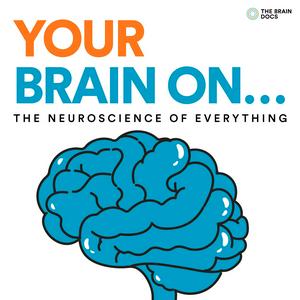
Ontvang de gratis radio.net app
- Zenders en podcasts om te bookmarken
- Streamen via Wi-Fi of Bluetooth
- Ondersteunt Carplay & Android Auto
- Veel andere app-functies
Ontvang de gratis radio.net app
- Zenders en podcasts om te bookmarken
- Streamen via Wi-Fi of Bluetooth
- Ondersteunt Carplay & Android Auto
- Veel andere app-functies


Your Brain On
Scan de code,
download de app,
luisteren.
download de app,
luisteren.


